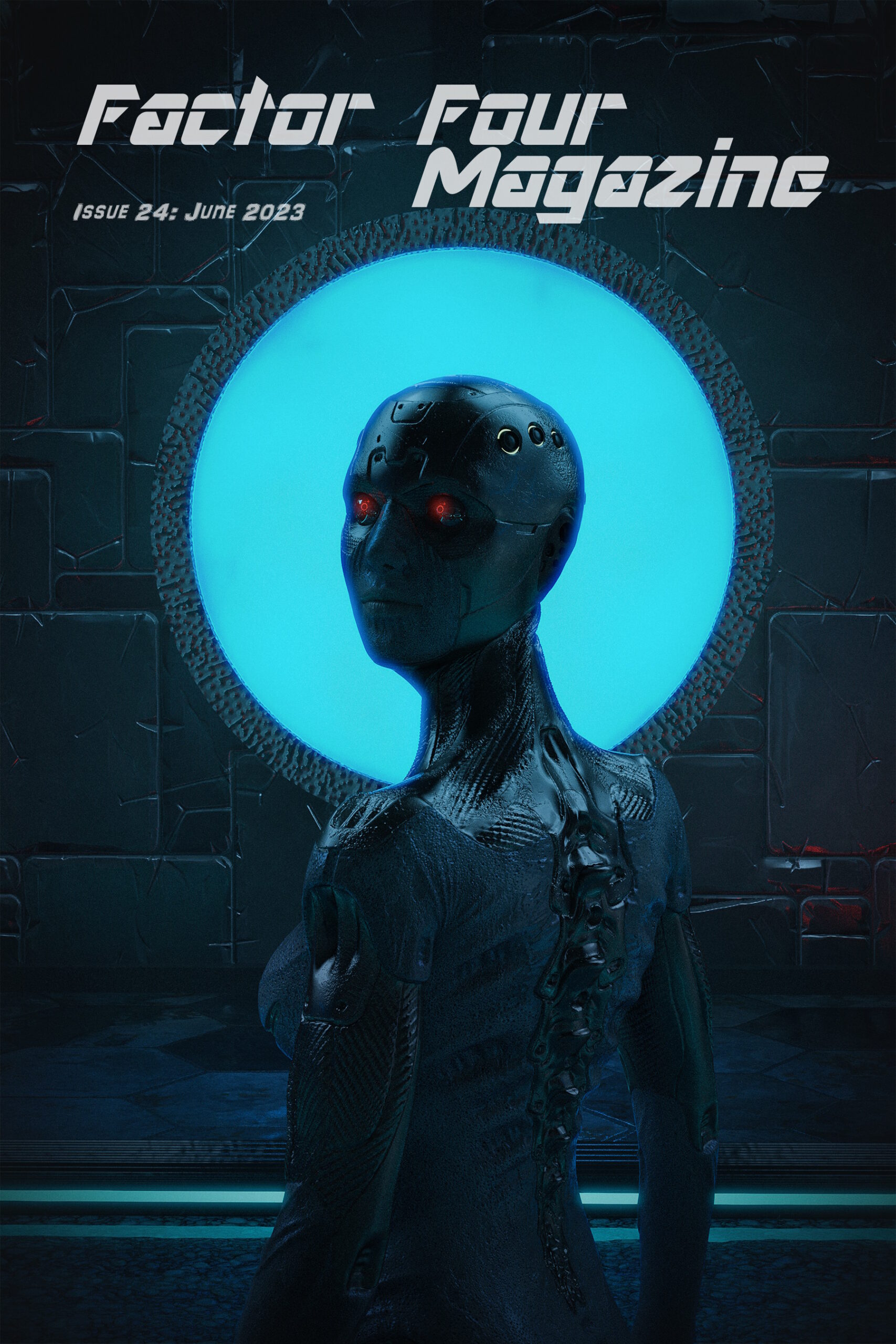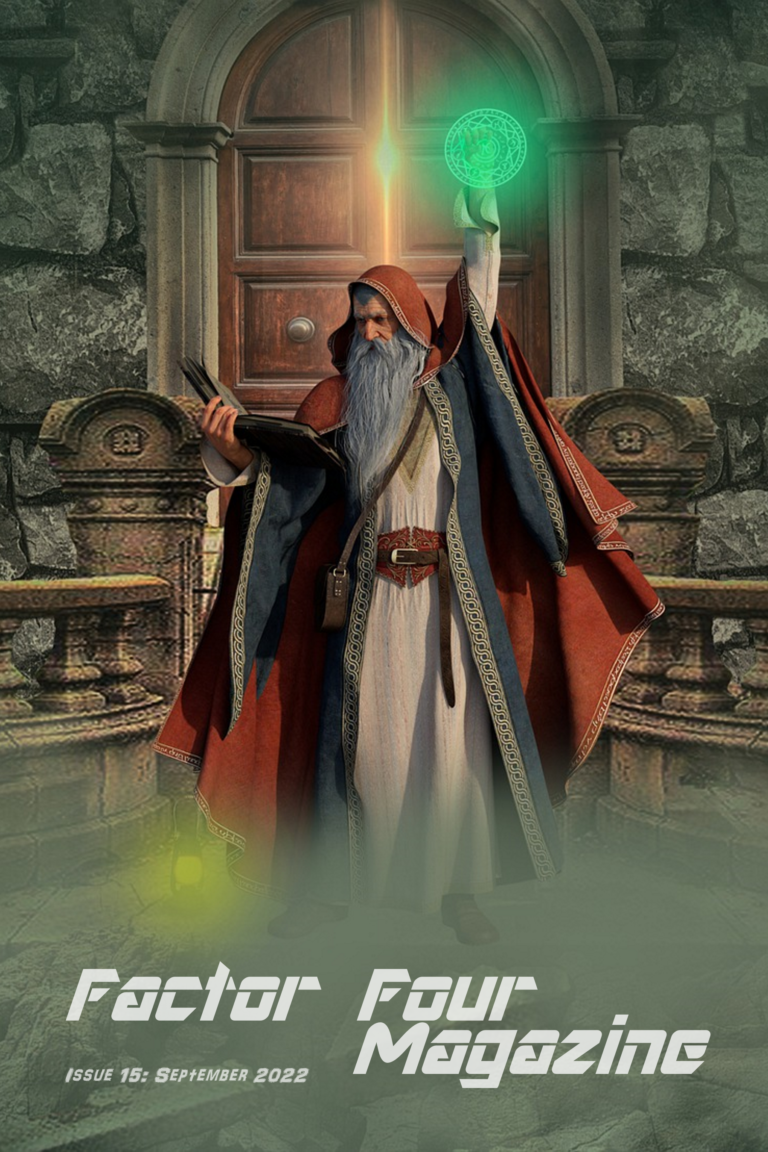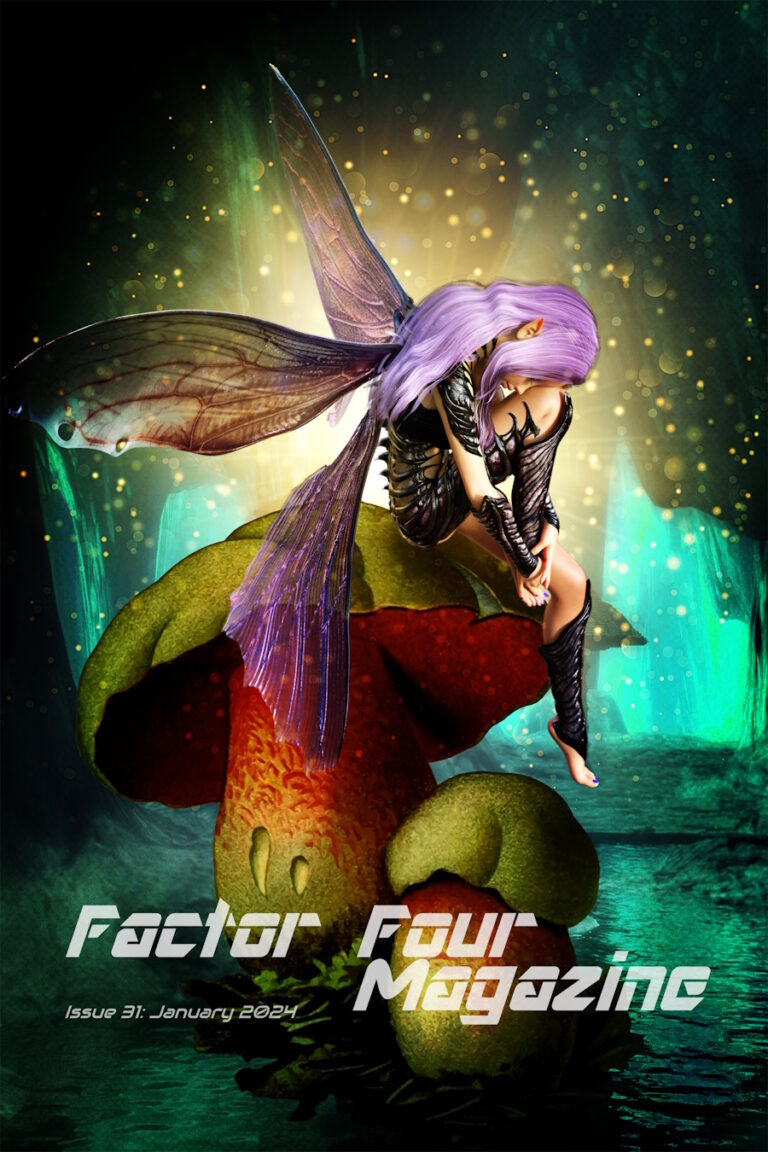The Companionship of Asps by Wendy Nikel

The first time I watched a man die, I was sitting on my mother’s lap, eating the last of the season’s figs.
“Swallow.” Even when condemning a man to death, Mother’s voice was like a lyre’s song, so that you considered yourself honored to be addressed, regardless of her demand.
At the time, I did not understand the man’s tears as the guards lifted the goblet to his lips. I did not understand why he flinched and fell rigid, a hand reaching out to her throne, and a snake — long and lithe and strange — slithered from his open mouth.
“The greater one’s power,” Mother always warned me, “the more one has to lose.”
It was that fear, perhaps, that drew her to the obscure arts of her ancestors — to the potions and spells they crudely call “poisons;” to the curious companionship of asps. My childhood was spent in her garden patios, playing underfoot with snakelets, while Mother studied and wrote and diluted and tested until she could not only cause a man to suffer or to die just once in this life, but to bind his being in a prison of living snakeskin. Thus, with a drop of her favorite tincture, his debt of service might still be paid.
They called her a goddess in her presence and a sorceress behind her back, for how else could a woman with such plain features hold such influence over such powerful men?
I was old enough then to see how they feared her but young enough to miss the signs when the suspicions that the vizier whispered into Father’s ear began to eat away at his surety. I did not notice Father’s shrewd observations, how closely he watched at our table, only consuming the food or drink that his beloved had sampled first herself.
But I was there that day, as she laughed and teased. With a toss of her onyx hair and a wink of her emerald eyes, she dropped flowers from her headpiece into their wine “for flavor,” and I recognized what he did not: that there were two varieties of aconite within her headpiece. The one in her wine was harmless, while the one in his was not.
Her eyes met mine across the table, and she held up a finger. Just wait.
The goblet was at his lips when she took his hand and stilled it. “You see how easy it would be to kill you? It is my love — not your vigilance — that preserves you.”
She gestured to the vizier to take the goblet, commanding him with a word: “Swallow.”
When the snake unfolded itself from between the vizier’s death-stilled lips, this time I understood why.
Powerful rulers attract powerful foes, and while potions guard well against the rivals at one’s table, the enemy at the gates is harder to fell. It was those armies, with spears and swords and chariots that are not tempted by wine or figs, that drove Father to the battlefield and Mother into her tomb.
“To make preparations,” she explained vaguely, though I dared not ask for what. Already, she had warned me of the things men do to the wives and children of those they usurp, and the fact that I was but a child would not protect me forever.
“You must be brave, when the time comes,” she said, “and I swear to you, I will be with you, little one.”
So I watched in silent desperation, those cool summer days in the sepulcher, as she mixed her concoctions and tended her snakes and prayed to her goddess for deliverance. As she painted her legacy in careful script upon her golden coffin.
And each evening, as her asps returned from their wanderings, bearing news of the army’s progress, I would fall asleep listening to their reports, lulled by the song of snake-speech.
In the end, it was her love that killed him, for that was Father’s only weakness. A friend-turned-traitor delivered him a falsehood, declaring that Mother was dead, and in despair — the strongest of all poisons — he fell upon his sword.
His true friends brought us his body, cold and sticky with blood. Mother screamed and cursed and wept over it all night as the snakelings and I looked on. But as the sun rose and the enemy chariots thundered closer, she stood, wiped her eyes, and said, “It’s time.”
“No!” My cry surprised us both, for I had never opposed her before, regardless of the strangeness of her instructions. But the thought of her lying within that golden coffin was too much for me to bear. “You swore that you would be with me! You promised!”
“And so I shall, little one.”
The enemy found me locked in Mother’s tomb with her body, her handmaidens, and her asps.
They attended to me with gentleness, for I was but a child and an orphaned one at that. I would be cared for in the palace of the usurper and raised as one of his own, for I was young, still easily influenced, and my loyalty would quickly be won.
I had only one demand: the companionship of an asp — onyx-scaled and emerald-eyed, with fangs a handbreadth long.
And when they brought me into my father’s throne room, to meet the usurper who’d claimed it, it was with my mother’s crown upon my head, and the asp draped across my shoulders whispering snake-speech in my ear in a voice like a lyre’s song.





